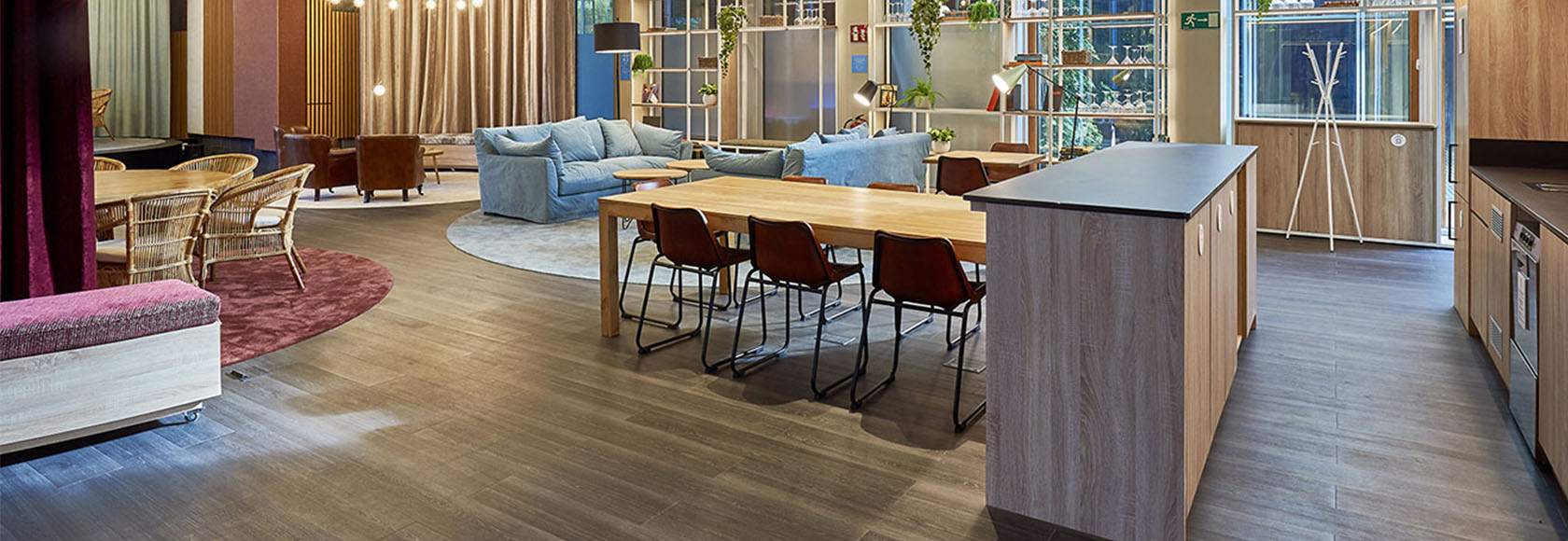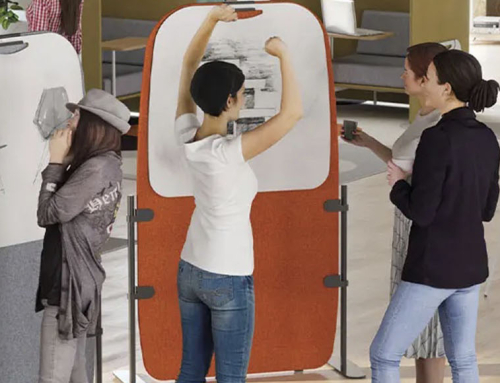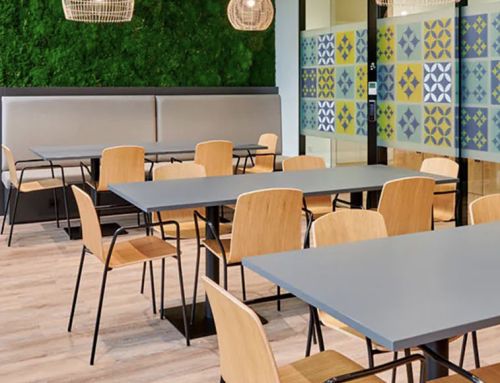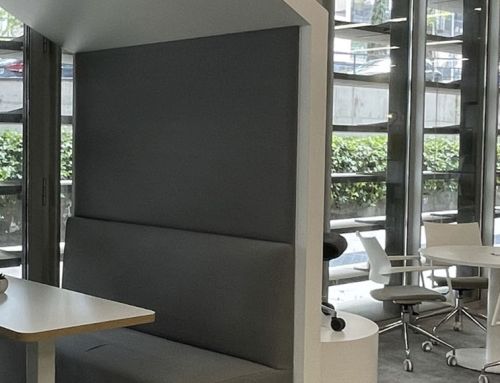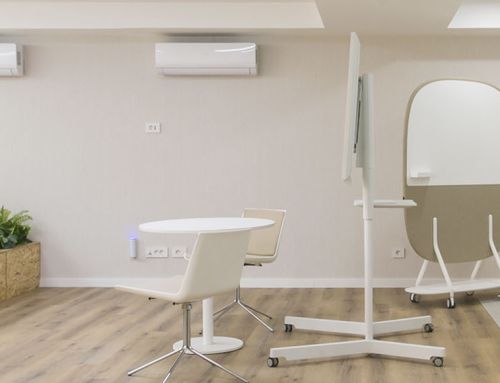Workspaces have been transforming rapidly due to the pandemic. We will see if these changes are here to stay or if organizations prefer to return to the pre-pandemic rules of the game. Not only has the when and where you work changed, but also the how and why, and this no longer depends so much on the companies as on the people who are part of them
However, many of these mutations in workspaces are not the result of covid-19 alone. To understand this evolution, we have to focus above all on the technology sector and the structural changes that began a little over two decades ago.
If we review the natural evolution of offices, they have gone from being a space to produce to a place where we innovate, co-create, solve problems, socialize and work as a team.
The third space, a growing trend
The new work model that companies are implementing in this new normality goes beyond working from the office or from home. A coworking space, a cafeteria, a library or an airport lounge become new environments suitable for developing our professional activity. It is the third space, a trend that will gain importance once the first phases of hybrid and remote work are overcome.
Currently, a large number of companies are analyzing the impact of remote work on their real estate footprint, looking for a good functional cohesion between the residence, the office and the third place. And thus new market agents arise. An example is the offices reserved on demand and payment for use.
We have overcome the initial phases of remote work, where it was eminently associated with telecommuting and therefore working from home, and we have definitely entered the “work from anywhere” phase where, beyond the options offered, what is rewarded is a basic foundation, the trust of organizations in their talent, so that it determines how, where and when.
The evolution is notorious, and blended models and formats are prevailing, work in the office, from home and in a network of third places, close, convenient, fully equipped and that respond to the immediate needs of an increasingly dynamic employee. Attendance at them may in some cases represent the same logic as the office: meeting spaces, positive connections, but also availability of elements that are difficult to access at home or that for reasons of social or economic need simply you don’t want to develop from it.
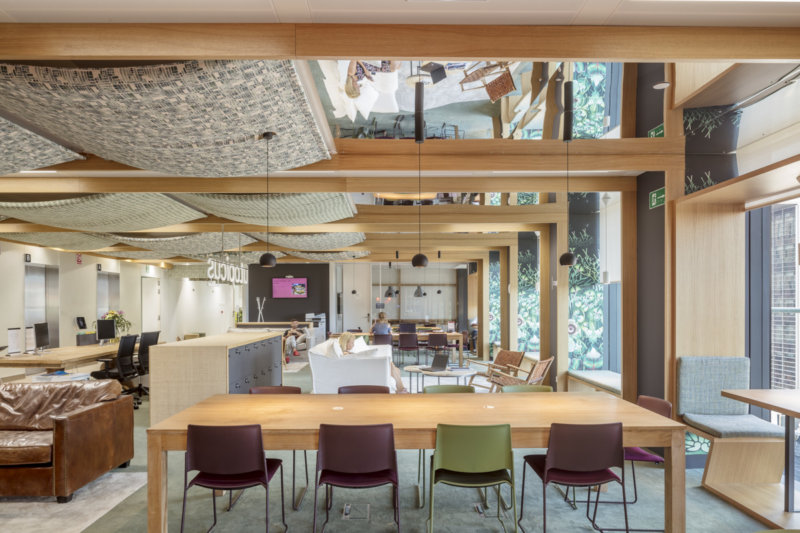
Utopicus Glories Lobby
Reserved offices on demand and payment for use
There are no commitments, and it is contracted on demand, the last frontier has been broken, and even the office is now consumed in a pay-per-use format. The user experience is now broader, now allowing him to choose where to work every day, but the search, reservation and validation experience must be digital, third spaces become the great evolution and it does not matter who is the operator or the person in charge, the important thing is the experience of the talent.
This change generates great implications in the lifestyle, in mobility, in the concept of neighbourhood, in the design of buildings and homes and obviously in the perception of productivity, both at work and in life.
We are moving towards a more “liquid” concept of the future of work, where various formats coexist in relation to the place where it is carried out, which must go hand in hand with a progressive implementation of flexibility policies in organizations, the degree of availability of spaces and their proximity or distance from customers and employees’ homes.
Many companies will continue to rely on traditional office space for many more years, but it will not be enough to prevent a transformation in the office market, including towards a model where access to idle space of organizations will be facilitated, in order to make a profit. economic, commercial or institutional performance.
Every day more companies offer part of their space for others to work on it.
However, we will notice a big immediate change, in practice it will evolve from having to go to the office to wanting to go to the office. The best companies will need less of that traditional office space than is currently offered and instead they must offer it and deliver it in a way that fits the needs of their talent, when they want it. And so, more businesses open up to offer part of their space for others to work on it.
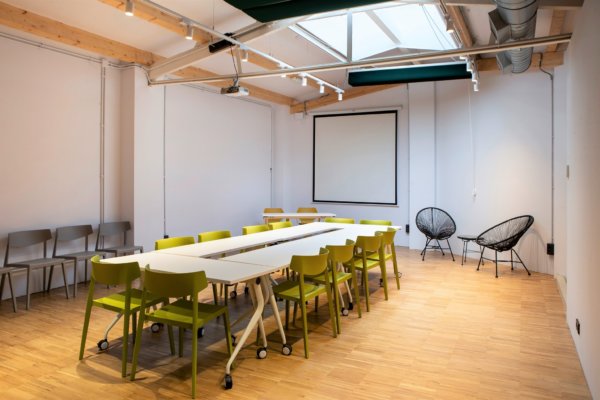
zityhub
zityhub, a new concept of flex offices
In this context, new market agents are becoming important, such as zityhub, which collects surplus spaces and offers them as a service. Zityhub is a B2B SPaaS (space as a service) platform, which allows companies to offer real flexibility to their employees with a network of diverse, distributed workspaces, bookable on demand and pay-per-use.
A digital experience that offers endless options adapted to the needs of the employees and the security and peace of mind for the company to comply with its work models, security protocols and guidelines. This platform already has 60 zityhub spaces in Madrid, Barcelona, Alicante, Bilbao, Malaga, Seville, Sabadell, Vigo…
Organizations register their company’s professionals through an app to a network of flexible spaces with resources that can be reserved on demand and pay per use, allowing daily freedom of choice about where to work. The professional chooses how to work and the organization pays only for what he uses.
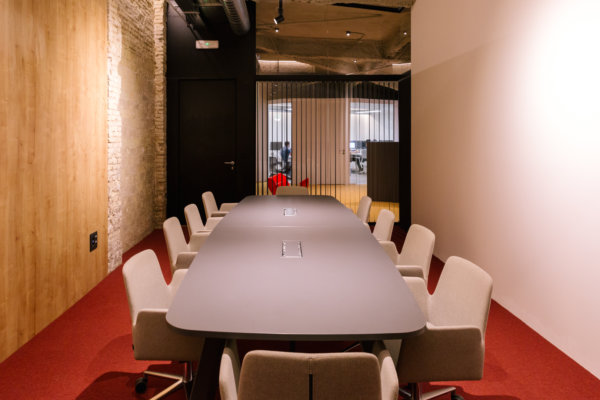
zityhub
We spoke with the Chief Operating Officer (COO) of zityhub, Pablo de la Hoz, about this practice of gathering surplus spaces and offering them:
Why is this type of space growing?
“The same thing happens to Real Estate as to other industries, where flexibility is increasingly valued. Just as now you can stay anywhere or use a car for minutes, the turn comes to the offices, which will be reserved under demand and pay per use. Flexibility comes to the user in terms of how he enjoys the service, but at the same time from the supply side by having better alternatives.”
Are they a direct consequence of teleworking?
“Let’s say that teleworking had an influence, but to a greater extent remote work and the fact of being in a time where work has been brutally relocated. On the other hand, we do not have the homes to have a work space continuously and sustainable, and of course, the social element has an impact, requiring interaction and collaboration”.
Spare office space due to flexible models?
“It is related, but obviously the impact of the pandemic has led to a reformulation of office contracting models, as well as real estate footprint review exercises according to the needs of companies and their employees. Probably, over space in a old conception of the office and lack of a new model that acts as a catalyst for the organization, a meeting and collaboration space”.
Are these on-demand, pay-per-use spaces becoming satellite offices for teleworkers?
“It is a trend that we already see in other countries, offices closer to the residences of the employees, but seen in a broader context. The office is now a network of distributed spaces, it is the distributed liquid office.”
In his opinion, the third spaces become the great evolution and it does not matter who is the operator or the person in charge, “what is important is the experience of the talent”.
